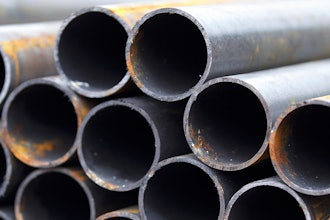BEIJING (AP) — Canada and China expanded cooperation Wednesday with agreements to boost bilateralinvestment and promote energy exports to China as Ottawa seeks to diversify its oil sales.
The agreements were signed during the first full day of a visit by Canadian Prime Minister Stephen Harper, who wants to push oil sales and closer economic ties following President Barack Obama's rejection of a pipeline carrying Canadian oil across the continental United States.
Harper, who is heading a 40-strong delegation of Canadian business leaders, witnessed the signings after talks with his Chinese counterpart, Wen Jiabao.
"Diversifying our markets is a key priority for Canada," Harper said in opening remarks to Wen. "We look forward to expanding our cooperation in any important areas, including energy, natural resources, tourism and education."
No specific details on the agreements were provided. Other agreements that were signed included promoting science and technology cooperation, student exchange programs and natural resource development.
Harper spent part of Wednesday selling Canada as a vacation destination to China's rapidly growing number of tourists.
He spoke at a tourism marketing office in central Beijing, surrounded by Chinese wearing cowboy hats — a bid to promote the Calgary Stampede, which marks its centennial this summer.
Harper is due to meet with President Hu Jintao on Thursday before heading to Guangzhou, the massive manufacturing center in southern China, to speak to businessmen.
The visit highlights efforts by Canada to diversify energy sales. The U.S. market currently absorbs 97 percent of Canadian oil exports.
Chinese state-owned companies have invested more than $16 billion in Canadian energy in the past two years and hope to gain steady supplies to fuel their country's booming economy. Chinese state-controlled Sinopec has a stake in a proposed Canadian pipeline to the Pacific Ocean that would substantially boost Chineseinvestment in Alberta oil sands.
Overall trade between the sides surged to almost $50 billion in 2011, according to official Chinese figures. Chinese have also increasingly looked to Canada as a destination for tourism and emigration.
Increasing energy exports has been a key theme of Harper's administration. Canada has the world's third-largest oil reserves — more than 170 billion barrels — after Saudi Arabia and Venezuela. Daily production of 1.5 million barrels from the oil sands is expected to increase to 3.7 million by 2025, which the oil industry sees as a pressing reason to build the pipelines.
Harper remains determined to build a pipeline to Canada's Pacific Coast after Obama rejected the Keystone XL pipeline, which would have taken oil from Alberta to the Texas Gulf Coast.






















